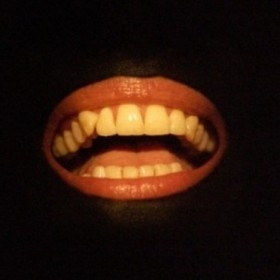Catherine Love: Great expectations
Are expectations a useful barometer against which to measure our theatrical experiences, or a barrier to enjoyment and surprise?
As a theatregoer, there’s nothing like a string of rave reviews to set you up for a fall. Go in with impossibly high expectations – no matter how closely your taste aligns with that of the reviewers in question – and the chances are that it will be a disappointment.

Of course, as a critic, I’m often among the first people to see a new show and one of those contributing to the problem of unrealistic expectations. I like to think that I’m sparing with my superlatives, but when something really leaves me giddy I can’t help but shout about it from the rooftops – or from the small corner of the internet that I’m lucky enough to occupy. I can boast nowhere near the influence of a first-string national critic, but I do hear from people who go to see things based on my recommendations, and I always find myself worrying that the show won’t live up to my enthusiastic account of it.
I got to thinking about this after seeing the Royal Court’s trilogy of short Beckett plays this weekend, which I was catching up with well after most of the reviews came out. Not I, the speedy monologue headlining the trio of shorts, had already been performed last year to the generally rapturous response of the theatre world, and its return alongside Footfalls and Rockaby was equally well received. Add to that Beckett’s formidable reputation and the mythologizing that his work has been subject to and it’s hard to shake off the shiver of anticipation.
I personally loved the experience, even if Footfalls and Rockaby felt a bit like supporting acts after the blistering intensity of Not I. But I was interested to read the thoughts of those who suffered from the feverish expectation surrounding the event. Susannah Clapp in the Observer found that the production did not live up to its promised visceral thrill, while Matt Trueman, who I ran into after the show, found himself completely unmoved by it, later writing in detail about why it left him cold. When he tweeted a link to his blog, a number of people quickly retweeted it or replied with slightly guilty expressions of agreement, suggesting that he is certainly not alone.
And I could list countless occasions when I’ve experienced similar casualties of expectation, either because of reviews or, more often, because of the artistic team involved. The Wooster Group’s Hamlet, for instance, was a production I’d read so much about that by the time I finally got to see it – much as I enjoyed it – I was never quite able to banish the echoes of other critics’ responses; I found my disappointment with The Anatomy of Melancholy heightened by the show’s contrast with all the good things I had heard about company Stan’s Cafe.
But, on the other hand, expectations can be useful. Sometimes the real measure of a show is when it actually does meet the great expectations that it has been burdened with. For me, Jerusalem – relentlessly brilliant from start to finish, even when squinted down at from up in the uncomfortable balcony of the Apollo Theatre – was a case in point. We also need to have expectations in order for them to be broken. Not I once again offers a perfect example: it may be the stuff of theatrical legend now, but when that disembodied mouth first emerged out of the darkness it must have been a startling sight for those watching. Perhaps, much as they might occasionally dampen the joy our theatregoing experiences, expectations are a necessary – and inevitable – evil.












